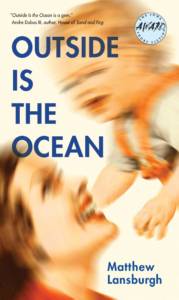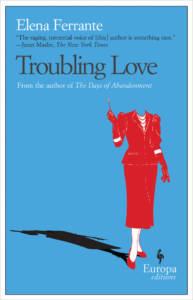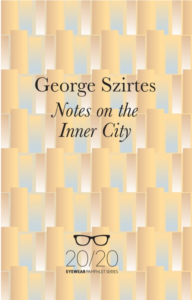Book by MATTHEW LANSBURGH
Reviewed by JULIA LICHTBLAU
Outside Is the Ocean, Matthew Lansburgh’s debut short story collection, is a particularly complete and satisfying example of the linked genre. The stories reveal a long, novelistic arc, while the broken chronology captures the fragmented personality of the central character, Heike, and the chaos she sows.
A gentile, post-war German immigrant to California, Heike speaks and thinks in a German-inflected English that’s full of mangled idioms—as in the opening line of the book: “Al gives me zero.” Or: “She thinks the world will give her French toast on a silver platter.” Heike disappoints and infuriates everyone, but is perversely optimistic, which gives many of the stories a certain hilarity, even the saddest ones. Humor enables Heike’s gay son, Stewart, a literature professor, and her adopted, one-armed Russian daughter, Galina, to survive her boundless narcissism and neediness.





 Notes on the Inner City
Notes on the Inner City


 On February 20, 1862, Abraham and Mary Lincoln lost their eleven-year-old son Willie to what was probably typhoid fever. Some twenty years ago, George Saunders learned about a rumor that had circulated at the time—that Lincoln several times visited the crypt where Willie was temporarily interred, removed the body from its coffin and, in his great grief, cradled his dead child in his arms.
On February 20, 1862, Abraham and Mary Lincoln lost their eleven-year-old son Willie to what was probably typhoid fever. Some twenty years ago, George Saunders learned about a rumor that had circulated at the time—that Lincoln several times visited the crypt where Willie was temporarily interred, removed the body from its coffin and, in his great grief, cradled his dead child in his arms.






